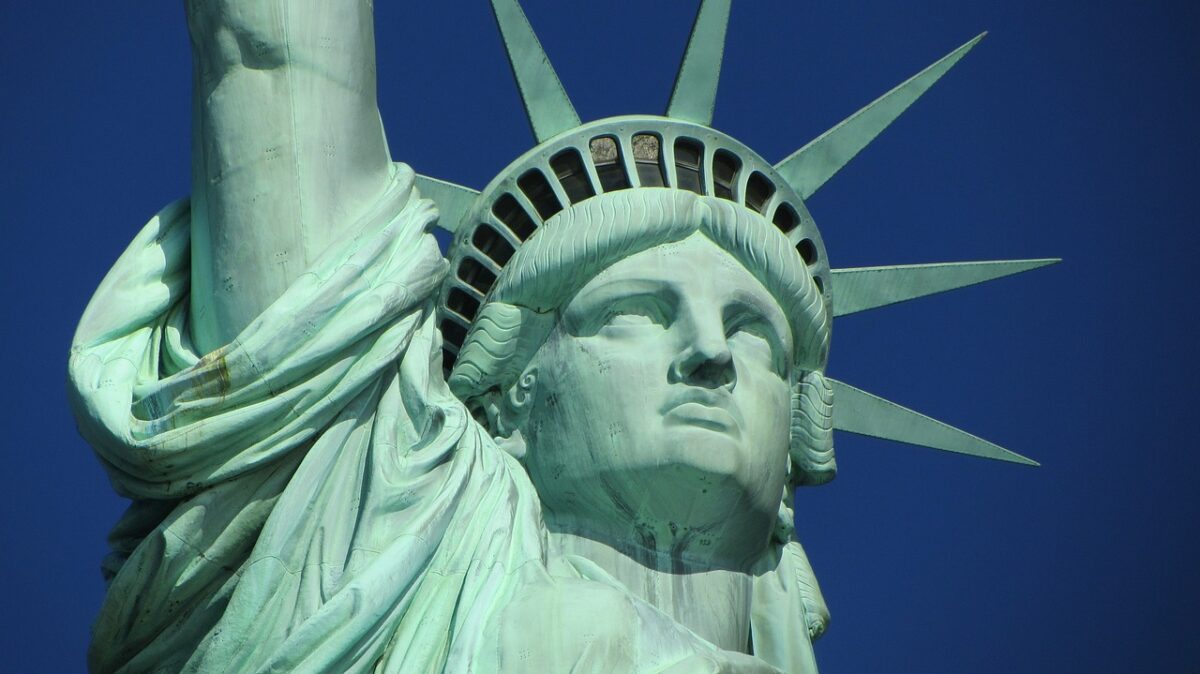
New York Cannabis Business Licenses & Restrictions
New York‘s cannabis industry is regulated by a comprehensive framework that governs various aspects of the market. From cultivation and processing to distribution and retail, all New York cannabis business licenses have their own set of permissions and limitations. Understanding these regulations is crucial for businesses and individuals looking to participate in New York‘s cannabis market.
New York Cannabis Cultivation Facilities
New York cannabis cultivators have specific permissions and restrictions outlined by regulations. Cultivators are allowed to hold one processor license and one distribution license, providing them with the opportunity to engage in multiple stages of the cannabis supply chain. This allows cultivators to have greater control over the processing and distribution of their cultivated products, ensuring quality and consistency throughout the process.
A cultivator or its true party of interest may be a true party of interest in other license types, such as processors, distributors, cooperatives, microbusinesses, or Retail Operators in the Adult-Use Market (ROND). This provision allows for interconnectedness within the industry and fosters collaboration while still preserving distinct roles and responsibilities for each license type.
However, cultivators in New York are prohibited from holding an additional cultivation license, a second processor or distribution license, or obtaining licenses for retail dispensaries, on-site consumption lounges, delivery services, Registered Organization (ROD), Registered Organization, or cannabis laboratories. These restrictions aim to maintain a clear separation between different sectors of the industry and prevent potential monopolistic practices or conflicts of interest.
It’s also important to note that cannabis cultivation facility licenses in New York are categorized into different tiers based on the square footage of the facility:
- Tier I: Not exceeding 5,000 square feet
- Tier II: Greater than 5,000 square feet, not exceeding 12,500 square feet
- Tier III: Greater than 12,500 square feet, not exceeding 25,000 square feet
- Tier IV: Greater than 25,000 square feet, but not exceeding 50,000 square feet
- Tier V: Greater than 50,000 square feet, but not exceeding 100,000 square feet.
New York Cannabis Processing Facilities
In New York, cannabis processors have certain permissions and limitations regarding their operations and true party interests. Processors are allowed to hold cultivation or distribution licenses, giving them the opportunity to have involvement in multiple aspects of the cannabis supply chain. This allows processors to oversee and control the cultivation or distribution of cannabis products, ensuring quality and consistency throughout the process.
However, processors are restricted from holding an additional processing license or obtaining a second cultivation or distribution license. This limitation prevents excessive concentration of power and promotes a more diversified industry landscape.
Furthermore, cannabis processors in New York are not permitted to operate retail dispensaries, on-site consumption lounges, delivery services, Registered Organization with Dispensing (ROD), Registered Organization, or cannabis laboratories. These restrictions ensure a clear separation of roles and responsibilities between different sectors of the industry and prevent potential conflicts of interest.
On the other hand, a processor or its true party of interest may be a true party of interest in other license types such as cultivators, distributors, cooperatives, microbusinesses, or Retail Operators in the Adult-Use Market (ROND). This provision allows for interconnectedness and collaboration within the industry, while maintaining distinct roles and promoting diversity in the cannabis market.
New York Cannabis Distribution Facilities
New York cannabis distributors have specific permissions and restrictions regarding their operations and true party interests. Distributors are granted the opportunity to operate licensed cannabis cultivation or processing facilities, enabling them to have involvement in multiple stages of the supply chain. This allows distributors to have greater control and oversight over the production and processing of cannabis products, ensuring quality and efficiency throughout the process.
However, distributors are prohibited from operating retail dispensaries, on-site consumption lounges, delivery services, Registered Organization (ROD) establishments, or cannabis laboratories. These restrictions aim to maintain a clear separation between different sectors of the industry and prevent potential conflicts of interest that could arise from consolidation or control across multiple aspects of the cannabis market.
It’s worth noting that distributors or their true parties of interest can also have true party interests in other license types, including cultivators, processors, cooperatives, microbusinesses, or Retail Operators in the Adult-Use Market (ROND). This provision allows for interconnectedness within the industry while still preserving distinct roles and responsibilities for different license types.
New York Cannabis Retailers
In New York, cannabis retailers have certain allowances and restrictions outlined by regulations. They are permitted to hold up to three retail licenses, providing them the opportunity to establish multiple retail locations within the state. Additionally, retailers have the option to operate adjoining premises for a consumption lounge, allowing customers to consume cannabis on-site in designated areas.
Furthermore, New York has introduced a delivery license, which enables cannabis retailers to provide convenient and direct delivery services to customers. This allows consumers to have cannabis products delivered directly to their doorstep, providing a convenient and accessible purchasing option.
In a notable development, New York will also allow cannabis dispensaries to operate drive-thrus. This feature offers customers the convenience of a quick and efficient method of purchasing cannabis products, similar to the drive-thru services commonly found in fast-food establishments.
However, it’s important to note that New York cannabis retailers are restricted from holding licenses for other sectors of the industry. They cannot hold licenses for cultivator, processor, distributor, cooperative, microbusiness, Registered Organization (ROD), Retail Operator in the Adult-Use Market (ROND), registered organization, or cannabis laboratory licenses. This separation of licenses ensures a clear distinction between the various aspects of the cannabis supply chain, promoting specialization and preventing consolidation of control in the industry.
New York Cannabis Microbusinesses
New York cannabis microbusinesses operate under specific regulations regarding their true party interests. A true party interest refers to a direct or indirect financial stake or involvement in other sectors of the cannabis industry.
Cannabis microbusinesses and their members are prohibited from having any direct or indirect interest in various aspects of the industry, including but not limited to being a true party of interest, passive investor, landlord, financier, or management services provider to retail dispensaries, on-site consumption lounges, delivery services, ROD (Registered Organization) licensees, registered organizations, or cannabis laboratory licensees or permittees.
This restriction aims to ensure the integrity of cannabis microbusinesses by preventing conflicts of interest and potential monopolistic practices. By limiting their involvement in other sectors of the industry, microbusinesses can maintain their focus on their designated operations, whether it be cultivation, processing, distribution, or a combination thereof.
New York Cannabis Cooperatives
In New York, cannabis cooperatives have the opportunity to operate multiple cultivation sites. However, it’s important to note that if a cooperative wishes to operate more than six sites, they must submit additional applications to the state. This requirement ensures proper oversight and regulatory compliance as cooperatives expand their operations.
To maintain the cooperative structure and foster fair participation, members of a New York cannabis cooperative are prohibited from being a member of any other cannabis cooperative. This provision aims to prevent concentration of power and promote a diverse and decentralized industry. By restricting membership to a single cooperative, the state encourages cooperation and collaboration within individual organizations.
Furthermore, members of a New York cannabis cooperative are restricted from holding any interest in a retail dispensary, on-site consumption lounge, or delivery service. This rule prevents conflicts of interest and ensures that cooperatives focus on their designated role as cultivators. By separating cultivation from retail and other cannabis-related services, the state aims to promote specialization and a well-rounded cannabis ecosystem.
How Can Point Seven Group Help?
The team of cannabis consultants and professionals at Point Seven Group have worked extensively in the U.S. and international cannabis markets and are familiar with the unique challenges of the cannabis industry. Follow us on social media to stay up to date with more cannabis industry updates!
- Wayzata moves to open city-run weed dispensary
 The City of Wayzata is considering opening its own recreational cannabis dispensary sometime next year. On Tuesday, Wayzata’s City Council and mayor approved a contract with Colorado-based consulting firm Point7 to draft a business plan for the possible municipal dispensary. This would be the city’s …
The City of Wayzata is considering opening its own recreational cannabis dispensary sometime next year. On Tuesday, Wayzata’s City Council and mayor approved a contract with Colorado-based consulting firm Point7 to draft a business plan for the possible municipal dispensary. This would be the city’s … - Indiana Cannabis Legalization: 2024 Update
 The Midwest has become a bustling hub for cannabis policy and industry, with states like Michigan, Illinois, and Ohio leading the charge in cannabis legalization. However, Indiana’s stance on cannabis remains a topic of significant interest and debate. As we delve into the status of …
The Midwest has become a bustling hub for cannabis policy and industry, with states like Michigan, Illinois, and Ohio leading the charge in cannabis legalization. However, Indiana’s stance on cannabis remains a topic of significant interest and debate. As we delve into the status of … - Cannabis Expungement and Social Equity: Proven & Failed Concepts
 In the realm of cannabis expungement and social equity, examining both proven and failed concepts is crucial for understanding the complexities of justice reform and equity within the cannabis industry. Proven concepts include initiatives such as automatic expungement processes, which streamline the clearance of certain …
In the realm of cannabis expungement and social equity, examining both proven and failed concepts is crucial for understanding the complexities of justice reform and equity within the cannabis industry. Proven concepts include initiatives such as automatic expungement processes, which streamline the clearance of certain …

